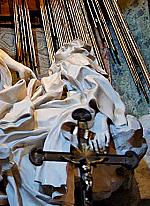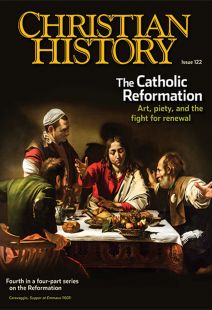The Council of Trent speaks
CHAPTER I: Since the holy council is not ignorant of how great a splendor and usefulness accrues to the Church of God from monasteries piously regulated and properly administered, it has, to the end that the old and regular discipline may be the more easily and promptly restored where it has collapsed, and may be the more firmly maintained where it has been preserved, thought it necessary to command, as by this decree it does command, that all regulars, men as well as women, adjust and regulate their life in accordance with the requirements of the rule which they have professed, and especially that they observe faithfully whatever pertains to the perfection of their profession, as the vows of obedience, poverty, and chastity, and any other vows and precepts peculiar to any rule and order and belonging to the essence thereof, as well as the preservation of common life, food and clothing.
CHAPTER V: The holy council, renewing the constitution of Boniface VIII, which begins “Periculoso,” commands all bishops that by the judgment of God to which it appeals and under threat of eternal malediction, they make it their special care that in all monasteries subject to them by their own authority and in others by the authority of the Apostolic See, the enclosure of nuns be restored wherever it has been violated and that it be preserved where it has not been violated.
—Excerpted from the Canons and Decrees of the Councils of Trent
Christian History’s 2015&ndash2017 four-part Reformation series is available as a four-pack. This set includes issue #115 Luther Leads the Way; issue #118 The People’s Reformation; issue #120 Calvin, Councils, and Confessions; and issue#122 The Catholic Reformation. Get your set today. These also make good gifts.
By Council of Trent
[Christian History originally published this article in Christian History Issue #122 in 2017]
Next articles
Ignatius of Loyola speaks
“Contemplation to Attain Divine Love,” The Spiritual Exercises (1541)
Ignatius of LoyolaThe road not taken
Evangelical Catholics worked for reform without leaving their mother church
Edwin Woodruff TaitPicturing saints
What Catholic piety in the Sixteenth century looked and felt like
Virginia C. Raguin






